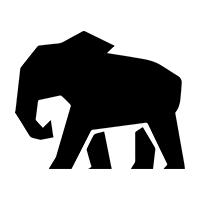As most of you may know, Stake DAO , in its objective to make the project a truly decentralized and autonomous organization, is in a continuous process to progressively automate and decentralize as many actions as possible. We are now reaching the final stage of this process, and this governance proposal aims to decide, as a community, upon the framework we want to have for the future of Stake DAO.
Why is this decentralization work important?
First and foremost, decentralization brings security to the protocol. The less reliance it has on a certain number of people, the more resilient it becomes to whatever happens. It will also help the community contribute to the development of the protocol, with anyone having the possibility to build and suggest improvements.
Finally, it is a way to make the protocol censorship resistant, and also compliant with EU’s MICA regulation, which will ensure that using the protocol, holding SDT, and contributing to the protocol’s development are activities which are fully compliant with European regulations.
What does it practically mean to be decentralized?
Being decentralized means that:
- no on-chain action or decision can technically be made without a governance vote from token holders;
- governance shouldn’t be controlled by a single entity;
- for actions that cannot be performed on-chain, clear delegation of power needs to be granted by governance to those who will be expected to execute them.
In practice in our case, it means we need to:
- [image]Move the governance of all Stake DAO contracts to veSDT governance
- [image]Build a framework where vote participation is high, and pushing transactions to the governance is easy enough so that the community can really take an active role in the DAO’s decision
What do we need to do to get there?
We have several questions we need to ask the communityourselves to reach full decentralization, and it is cleaner to treat each of them in separate proposals, to have a proper debate for each. Therefore, there will be a series of proposals that will be brought to the forum to tackle the following questions.
First, the governance of all Stake DAO contracts has been transferred already to the Multisig (0xF930EBBd05eF8b25B1797b9b2109DDC9B0d43063). This multisig is currently governed by 7 addresses, out of which 4 are required to pass a transaction.
We need to either transfer the governance of this multisig to on-chain governance, or transfer the governance of all those contracts to an on-chain governance contract. In both cases, we need to put together an emergency DAO as a purely on-chain-governance-based process also bears risks (transaction with a coding mistake, governance attack, lack of participation, etc.) So we also need to decide who will be part of this emergency DAO.
Then, we need to formalize the relationship between the DAO and teams or individuals providing services to the DAO, such as maintenance and development. We also need to discuss a way for the DAO to perform off-chain actions for the DAO when needed (e.g. paying fiat bills for UI management, etc.).
We also need to decide how to perform the treasury management, as it requires an agility in executing transactions that an on-chain governance contract cannot provide.
Finally we need to discuss the mechanisms that will enable the protocol to keep being developed in the long term, and to keep a stability in contributions from current contributors.
Timing
This process is key for the protocol, but it would be great to get everything done within one month. You will soon see proposals coming for each key subject, please take the time to review and provide feedback. We are very excited about this process which will give Stake DAO the same governance and security standards as main blue chip protocols.
